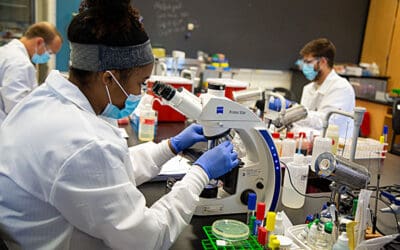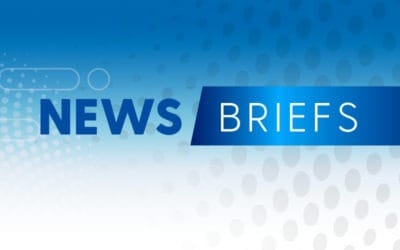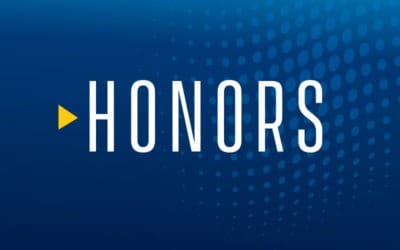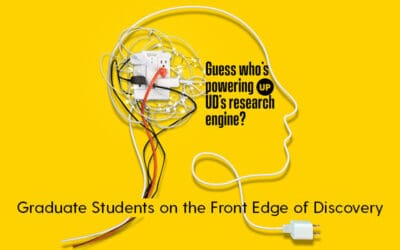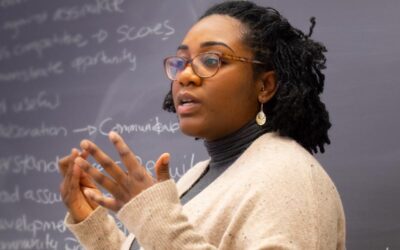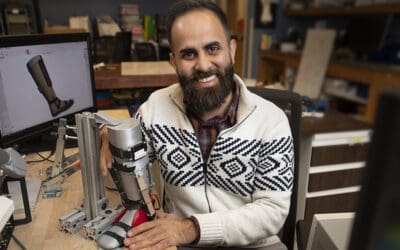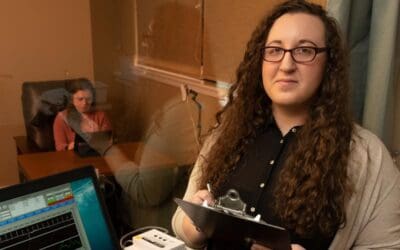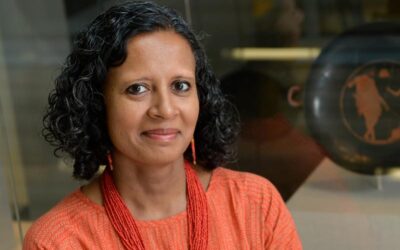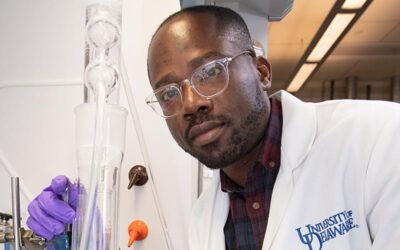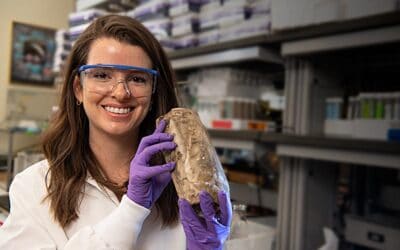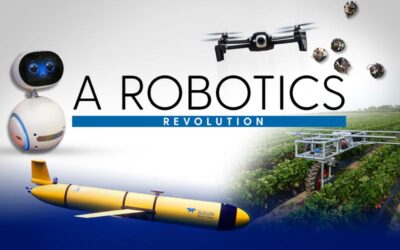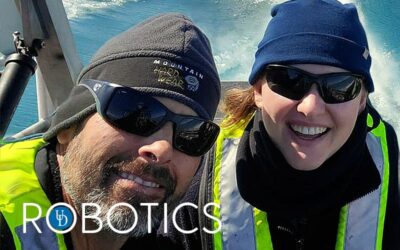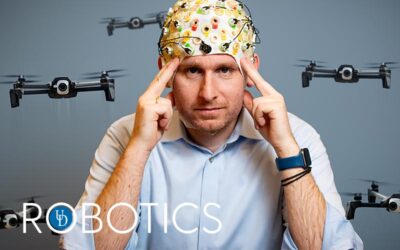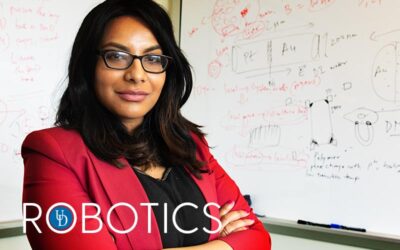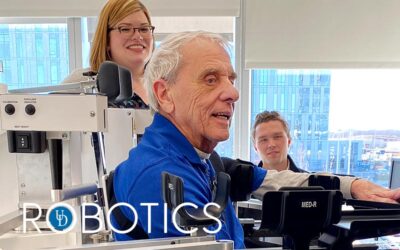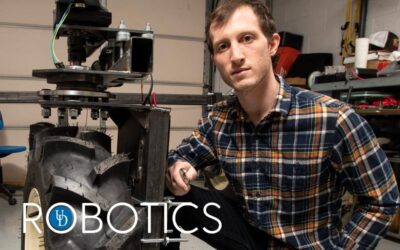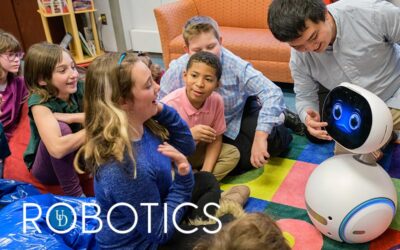URBAN AFFAIRS & PUBLIC Policy
GRAD STUDENTS ON THE FRONT EDGE OF DISCOVERY
Pablo McConnie-Saad is a doctoral student in urban affairs and public policy and the first Whittington Fellow at the Biden Institute at the University of Delaware. He is looking deeply into democracy in the U.S. to better understand how to strengthen it, inspired in part by his experience in the Congo. He previously received his master of public administration degree at the Joseph R. Biden, Jr. School of Public Policy and Administration.
Pre-pandemic photo by Evan Krape
URBAN AFFAIRS & PUBLIC Policy
GRAD STUDENTS ON THE FRONT EDGE OF DISCOVERY
Pablo McConnie-Saad is a doctoral student in urban affairs and public policy and the first Whittington Fellow at the Biden Institute at UD. He is looking deeply into democracy in the U.S., to better understand the process and how to strengthen it, inspired in part by his international experience in the Congo. He previously received his master’s of public administration degree from the Joseph R. Biden, Jr. School of Public Policy and Administration.
Strengthening democracy
for a better world
by Tracey Bryant
Reading Joseph Conrad’s Heart of Darkness, set in the Congo in the 1890s, left an indelible impression on Pablo McConnie-Saad when he was in high school. The story, which exposed the horrors of Belgium’s colonial rule over the Congolese — who were forced into labor for the ivory and rubber trade — ignited his interest in politics and set him on a journey to better understand democracy.
“I’ve always loved literature,” said McConnie-Saad, a doctoral student in urban affairs and public policy at UD. “History books will only tell you factual information, but literature paints in the mentality and imagination of the people. This book made me want to know more.”
He would learn a great deal about the Congo and U.S. policy as a Mellon Mays Undergraduate Fellow at Oberlin College. After graduating, he worked in San Francisco with the nonprofit Responsible Sourcing Network (RSN) to help bring stakeholders together over trade in the Congo’s abundant minerals — tin, tungsten, tantalum and gold — which has fueled ongoing conflict. The U.S. passed the landmark Dodd-Frank Wall Street Reform and Consumer Protection Act in 2010, which included a conflict mineral section requiring companies to show they are working diligently to ensure they are not funding armed groups or human rights abuses in the Congo region. With RSN, McConnie-Saad would help draft policy recommendations that went to the European Commission to create complementary legislation.
Then in 2014, he worked for a Congo-based firm involved in a not-for-profit festival that took place simultaneously in Africa and America to celebrate the 40th anniversary of the “Rumble in the Jungle” boxing match between Muhammad Ali and George Foreman. A goal was to help present the Congo through a more positive lens on the world stage, while also introducing a new generation to Ali’s principles of confidence, conviction, dedication, giving, respect and spirituality.
Still today, however, more than 100 armed groups are active, mostly in the eastern region of the Democratic Republic of the Congo, a nation nearly one-quarter the geographic size of the United States.
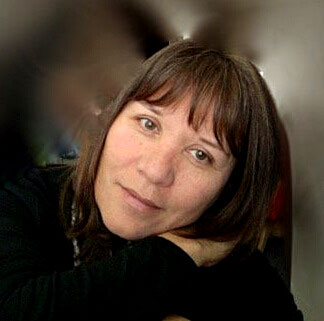
Learning from Practitioners
As a teaching assistant for the Biden Institute’s one-credit practitioner class in environmental policy, Pablo McConnie-Saad has gotten to meet William Michael McCabe, former deputy administrator of the EPA, and more recently UD alumna Cecilia Martinez (above), executive director of the Center for Earth, Energy and Democracy (CEED), who has been named one of the 100 most influential people of 2020 by Time magazine.
”These sorts of opportunities seem possible because it’s Delaware and of course because it’s the Biden Institute. Anticipating these opportunities attracted me to the program.”
— Pablo McConnie-Saad
Rubbing Elbows with World Leaders
Faculty, staff, students and alumni at the Biden Institute pursue nonpartisan research to inform effective policy and administration. As a nonpartisan convener, the institute brings leaders from different disciplines together, providing students with access to prominent policymakers.
“I’ve met President-elect Joe Biden and his sister, Valerie Biden Owens — who are both hugely important to American politics; Michael Nutter, former mayor of Philadelphia; Sally Yates, former Acting U.S. Attorney General; Samantha Power, former U.S. Ambassador to the United Nations, and during quarantine I’ve had the chance to be on a Zoom with former Secretary of State Colin Powell and more recently political strategist Ana Navarro, to name only a few.”
— Pablo McConnie-Saad
A bird’s eye view into policymaking
From studying the Congo, McConnie-Saad began thinking about problems of democracy in the U.S., from forgotten rural areas to voter apathy, and wanted to further his skills and knowledge. He looked into UD’s Master of Public Administration program and was impressed by the fact that he could work on his professional degree at a strong research institution and have access to real policymakers.
Through the competitive Legislative Fellows Program available to students in higher education in Delaware, McConnie-Saad was selected to serve as primary staffer for the House Revenue and Finance Committee and the Economic, Development, Banking, Insurance and Commerce Committee. It gave him the opportunity to research a broad array of topics, from state gun policies to the U.S. Department of Transportation grant that has funded construction of the new train station in Newark.
“This is a small state with a big research university, so you get the chance to really witness the benefits of the work you’ve done,” he said.
And many more opportunities lie ahead.
McConnie-Saad is now a doctoral student in urban affairs and public policy at UD, and the first Whittington Graduate Fellow at the Biden Institute. U.S. President-elect Joe Biden, a UD alumnus, is founding chair of this nonpartisan research and policy center, which was established in 2017, and is rooted in two guiding principles the president-elect has long embraced: economic opportunity and social justice. The institute is exploring such issues as economic opportunity for the middle class, income inequality, violence against women, civil rights and LGBTQ rights, civil liberties and criminal justice reform, health care reform, environmental sustainability, the state of our democracy and politics, and political reform.
“Democratic institutions and economic development go hand in hand, which is what I’m delving into in my research,” McConnie-Saad said.
Specifically, he’s studying state voting policies and how they interact with indicators of economic inequality in the U.S. He’s constructing a data set that looks at state voting policies over a long period of time after the Voting Rights Act of 1965 and then seeing how these policies may have had an effect on inequality in the states over time.
“This can tell a story of how our democracy functions,” he said of the data-intensive project. “I want to truly understand what the process of democracy is. The thing that most people associate, and is most tangible to democracy, is the ballot box. If you have the ability to vote and you understand your condition, then it’s likely that you would vote to improve your condition.”
Complementing his dissertation studies is his graduate fellowship at the Biden Institute, which focuses on a critical question: How do you strengthen a democracy?
“Growth in inequality points to a diminished middle class,” McConnie-Saad said. “It’s easy to slip out of a democracy and into authoritarianism. We can’t take our democracy for granted, but it’s very easy to do that when it’s almost invisible. And in the U.S. we’ve never not had it. There’s no understanding of what America is without it.”
Having grown up in Philadelphia and Puerto Rico in a close-knit family, having lived on the West Coast and traveled to the Congo and elsewhere internationally, McConnie-Saad has already had lots of rich experiences in his young life and more are developing every day. They all harken back to a common motivation.
“It’s wired into me,” he said. “You do what you can for the community in which you live. You try to make a better world.”
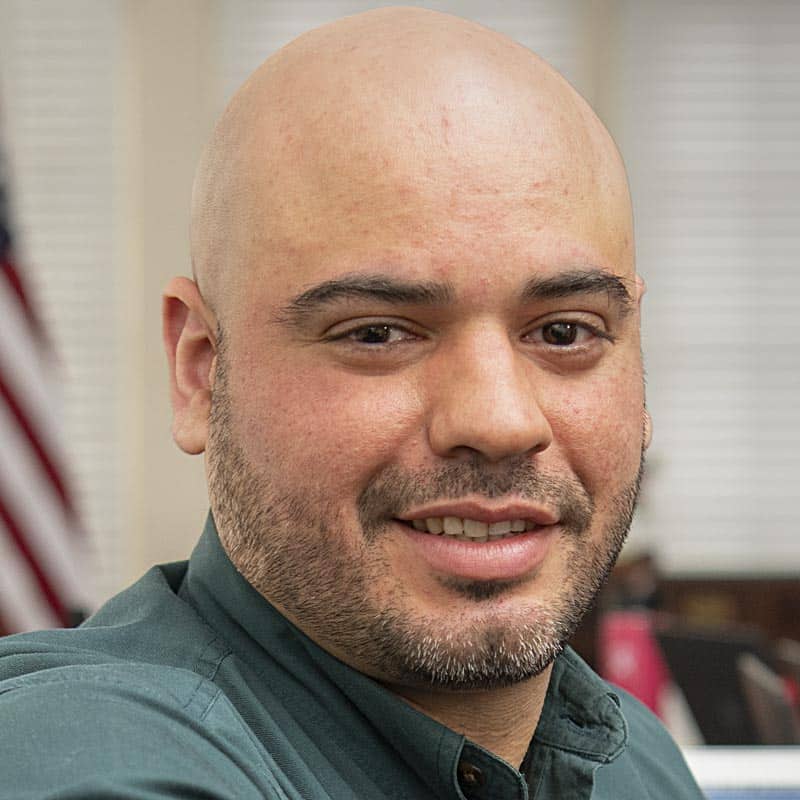
Favorite things when you need a study break?
- McConnnie-Saad loves to read literature. Joseph Conrad’s Heart of Darkness has had a major impact on his life.
- The Philadelphia resident runs along the Delaware River and does his own strength conditioning.
- He knows how to play the French lowland bagpipes. Specifically, they are bagpipes from Brittany known as binioù kozh, which means “old bagpipe.” Although his typical repertoire (when he has time to play) is French renaissance music, his favorite piece is actually a Scottish dance — a nod to his Puerto-Rican and Scottish heritage.
— Pablo McConnie-Saad
Get to know our grad students
This special section of our digital magazine highlights a powerful force behind UD’s research engine.
MORE STORIES
From the Vice President for Research, Scholarship and Innovation: Moving Forward
The UD research community continues to navigate COVID-19, with health and safety the highest priority. In spite of hardships, we’re facing the pandemic with vigilance and resilience.
News Briefs
Check out our COVID-19 research, a virtual visit with the editor-in-chief of Science, and undergrads at work on the Frontiers of Discovery.
Honors: Celebrating Excellence
UD faculty and students have won major recognition for their expertise and contributions.
Guess Who’s Powering Up UD’s Research Engine?
This issue of the University of Delaware Research magazine introduces you to a critical creative force at UD — our graduate students and postdoctoral researchers. Their ingenuity is lighting new routes to discovery and solutions.
Front Edge of Discovery: Developing resilient Black girls
Doctoral student and Graduate Scholar Nefetaria Yates is examining school discipline and the tactics Black girls have developed for dealing with the pressures they face. Her ultimate goal is to elevate voices that have been silenced.
Front Edge of Discovery: Helping children move
Entrepreneur Ahad Behboodi wants to see kids with cerebral palsy move more freely. He plans to commercialize a robotic foot device with the power to help them.
Front Edge of Discovery: A clinical science approach
Lexie Tabachnick, in her fifth year of doctoral studies, helps to mentor other grad students and undergraduates while she studies the powerful impact a UD-developed family intervention program is having on vulnerable kids.
Front Edge of Discovery: Beyond the hands of a potter
Sanchita Balachandran, associate director of Johns Hopkins Archaeological Museum and doctoral student in preservation studies at UD, is uncovering the forgotten makers of ancient Greek ceramics, and in so doing, changing our understanding of the past.
Front Edge of Discovery: Changing the world, one food waste at a time
Elvis Ebikade thinks potato peels hold a lot of promise. He’s working on converting the food waste to valuable chemicals and fuels that can power an environmentally-friendly future.
Front Edge of Discovery: The thing about permafrost is…
As a postdoctoral researcher, Liz Coward collected samples of permafrost from the icy walls of a research tunnel in Alaska to study the carbon stored within it.
A Robotics Revolution
Researchers at the University of Delaware are leveraging robotic systems to gain traction on tough problems. Learn how they are driving forward transformative solutions in agriculture, precision medicine, health care, cybersecurity, marine ecology and more.
UD Robotics: Antarctic food webs
University of Delaware researchers Matthew Oliver and Katherine Hudson think that some biological hotspots in Antarctica may operate less like local farms and more like grocery stores. If they are correct, it could provide new information about how this ecosystem will be affected under climate change.
UD Robotics: Robots these days!
Brain-swarm technology is meant to connect minds and machines. For Associate Professor Panos Artemiadis such robotics research has one purpose: To make life and work better for humans.
UD Robotics: Meet me on the cutting edge
Sambeeta Das is forging into an exciting world you can see only with high-powered microscopes, where sci-fi meets reality. Welcome to the world of microrobots!
UD Robotics: Allies in Overcoming Stroke
Stroke is a leading cause of long-term disability, but UD Professor Jennifer Semrau is working to change that. With the help of a robot, she’s uncovering a critical sixth sense that gets sidelined with stroke.
UD Robotics: Startup with Roots
Adam Stager is working on chemical-free ways to help strawberry farmers improve yield using an autonomous field robot.
UD Robotics: Social Robots
Children have grown up with interactive technologies like Siri, Google and Alexa, but they don’t always know how to stay safe online. UD researchers are working on ways to help them.
A Jewish Oral History
A class helps preserve the precious stories of a little-documented time in Jewish life.
Test Your Knowledge: Getting Back to Nature
To reduce stress and strengthen our immune systems, experts often point us to the outdoors. So let’s get moving! There’s lots to see and hear, absorb and appreciate in nature.


